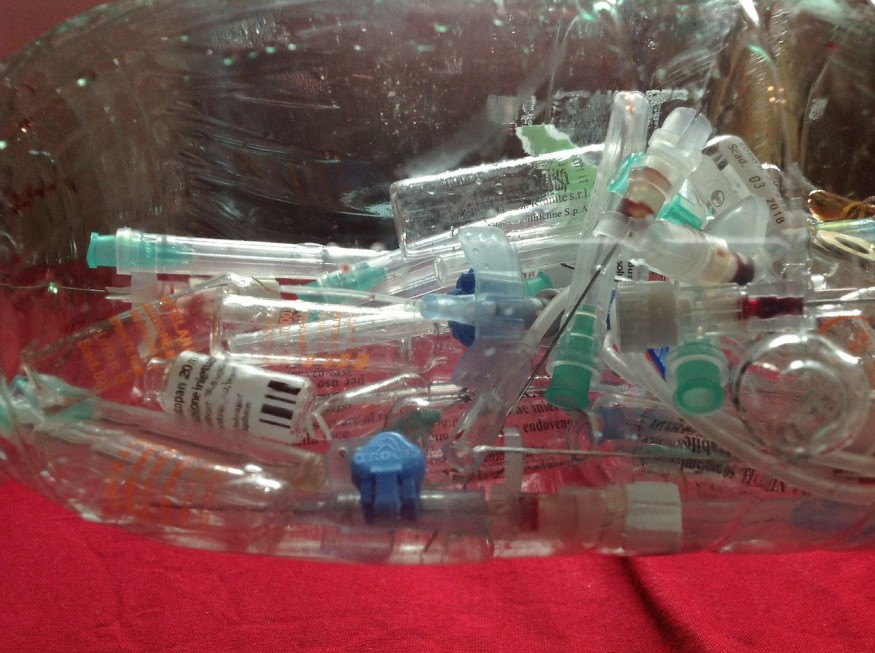
Hundreds of pieces of medical waste, including syringes, were found Saturday along the shore of Venice Beach in California.
Los Angeles County Fire Department officials said lifeguards saw "a large amount" of medical supplies littered along the beach around 11:30 a.m. It is unclear where the medical wastes came.
KTLA said other government agencies in California - including US Coast Guard and police and LA County Department of Public Health - were also informed by the lifeguards over the incident. Officials closed a portion of the beach for investigation but were reopened later on. However, officials said the area would still be monitored for the safety of public use until the cleanup and investigation are complete. No injuries were reported related to the needles.
#DriftIC The source is unknown and under investigation. @LACoLifeguards will continue to patrol the area by land and sea to monitor for any further materials. pic.twitter.com/fFjTaCPJTA — LACoFD Lifeguards (@LACoLifeguards) November 10, 2019
The fire department's lifeguard division wrote in another tweet that crews would remain to monitor the area by land and sea to search for any additional materials that may have washed ashore.
The incident became a significant concern to lifeguards and the people at Venice Beach. While lifeguards say they meticulously cleaned up the beach Sunday afternoon, surfers and beach walkers said they would be extra cautious now.
Mike Bonasede, a Venice resident, told NBC Los Angeles that he has never seen anything like that incident before. Bonasede said he had seen single needles from people on land; however, he presumed that someone discarded the waste the way it was washed up in the shore.
Michael Gaspark, another Venice resident, also expressed his concerned to NBC Los Angeles about the discarded medical waste. "Hopefully, someone can figure out where it came from, so it never happens again," he said.
Understranding medical waste regulations
More than 936 million needles and other disposable equipments are used by consumers in California per year, according to CalRecycle. About 31 percent of those are thrown in the trash, CalRecycle added.
University Mass Lowell estimated that seven percent of syringes are flushed in 2015, adding that needle-related injuries happen with "unacceptable frequency."
Environmental Research and Education Foundation in 2018 determined that 4 percent of material recovery facility workers are pierced by needles per year while doing their jobs.
Former California Governor Jerry Brown - according to California Product Stewardship Council (CPSC) - signed SB 212 into law, which establishes a statewide take-back system for sharps and medications.
California is the first state in the United States to establish a producer-funded take-back agreements to implement safe and convenient disposal options for medical wastes.
Heidi Sanborn, senior advisor and former executive director of the CPSC told Waste Today Magazine that their firm tirelessly worked to get the full cooperation of the pharmaceutical industry to put into place the statewide take-back program.
SB 212 tackles the exiting problems on the lack of a statewide system to manage these products at their end-of-use.
© 2025 NatureWorldNews.com All rights reserved. Do not reproduce without permission.





